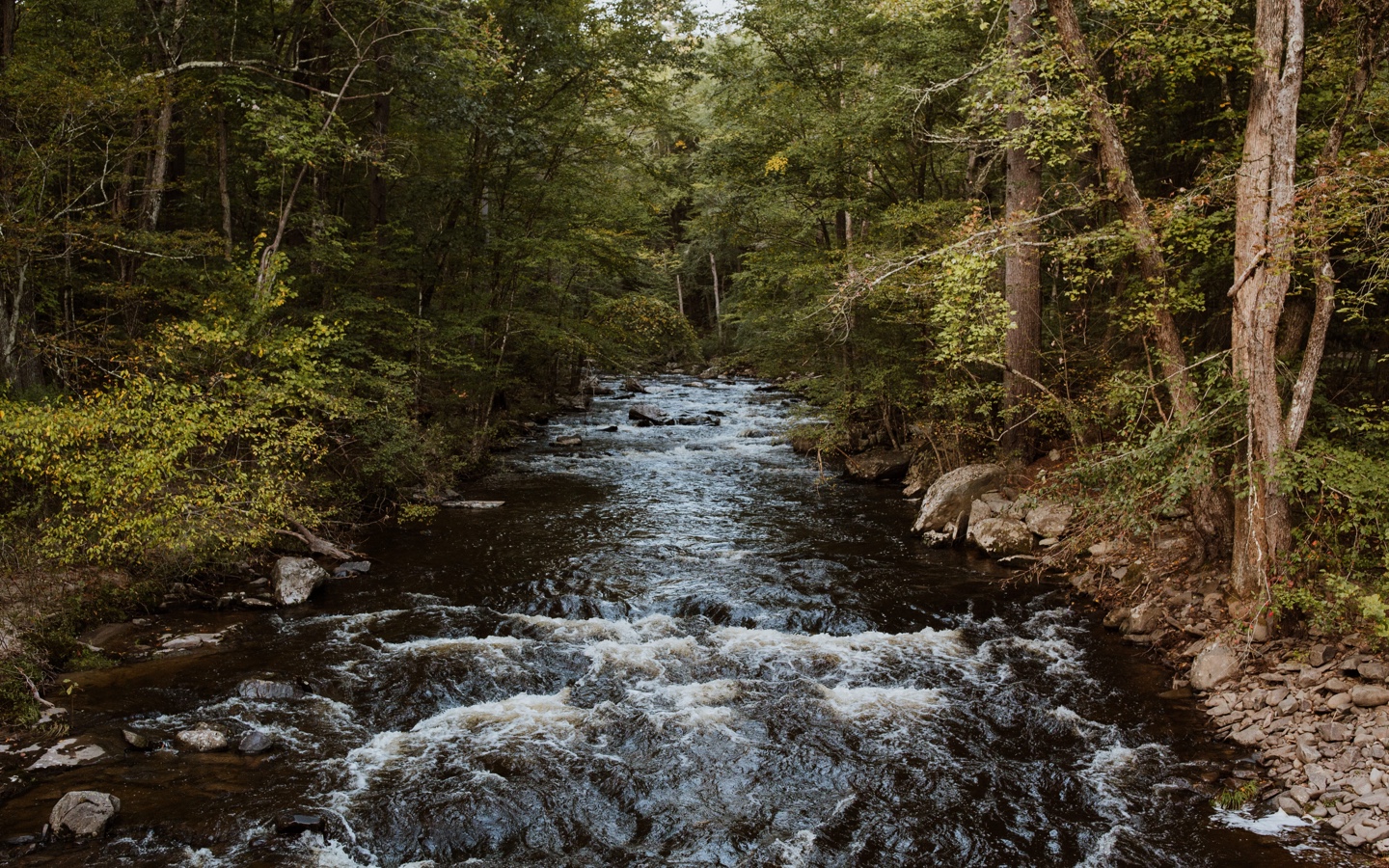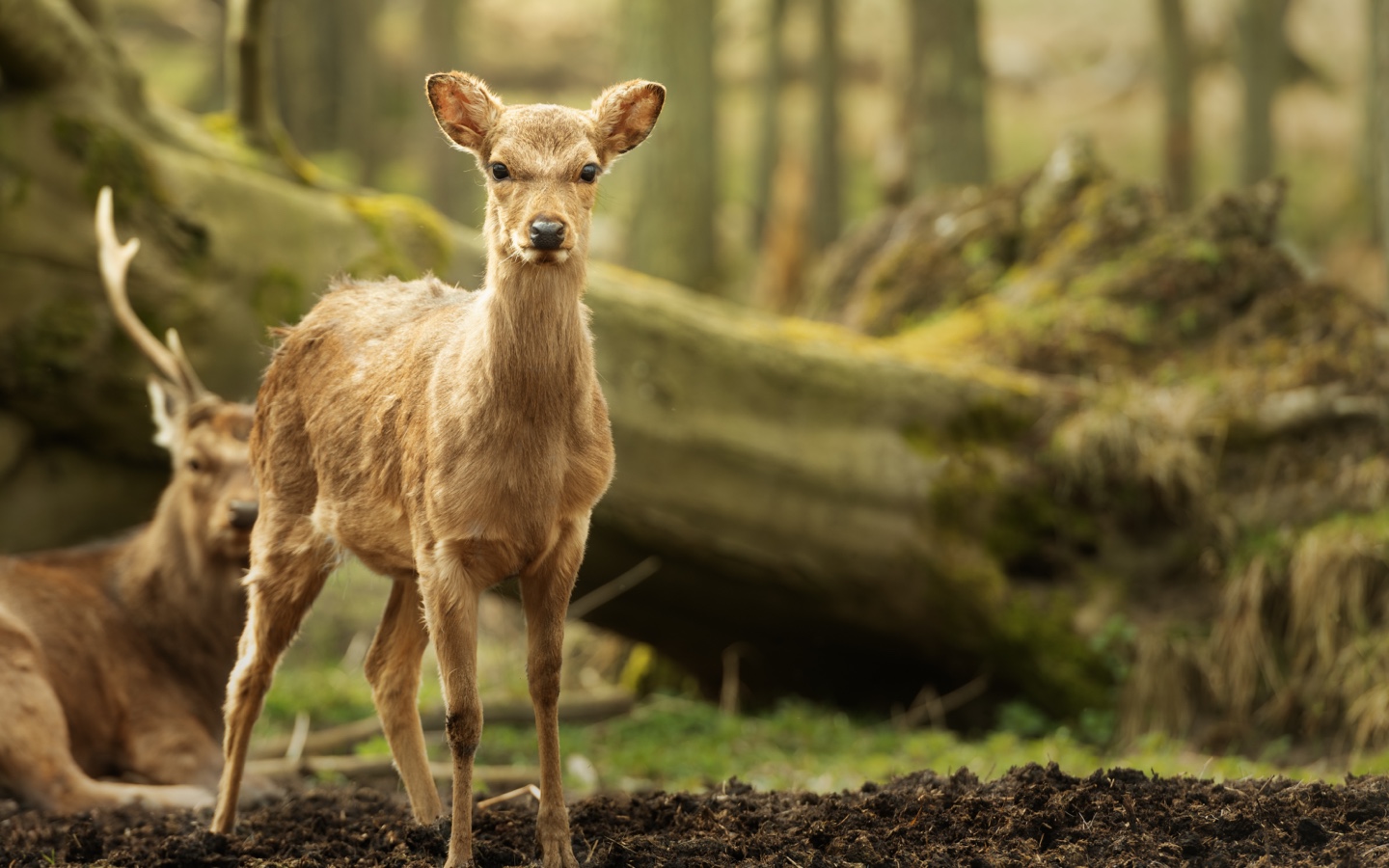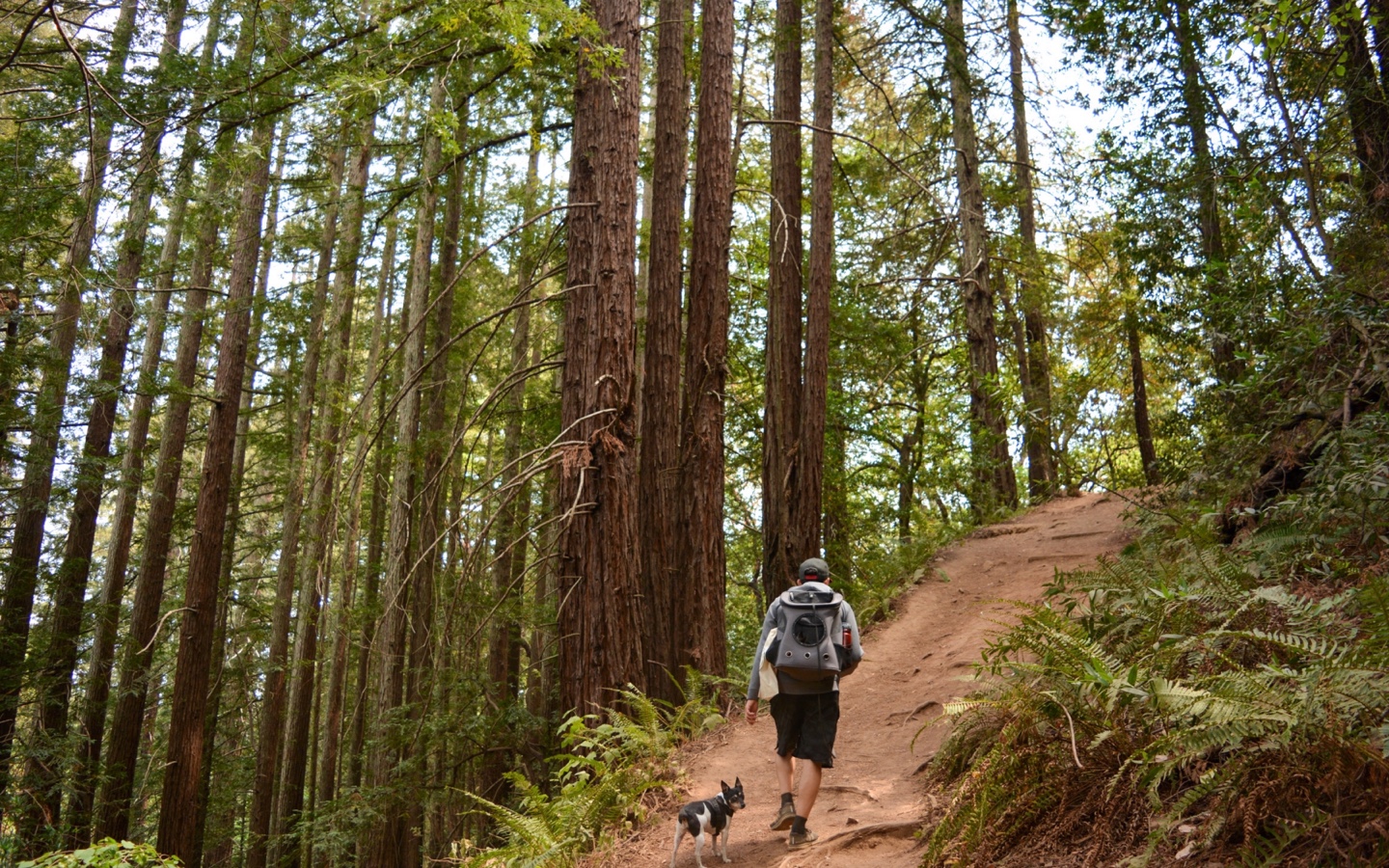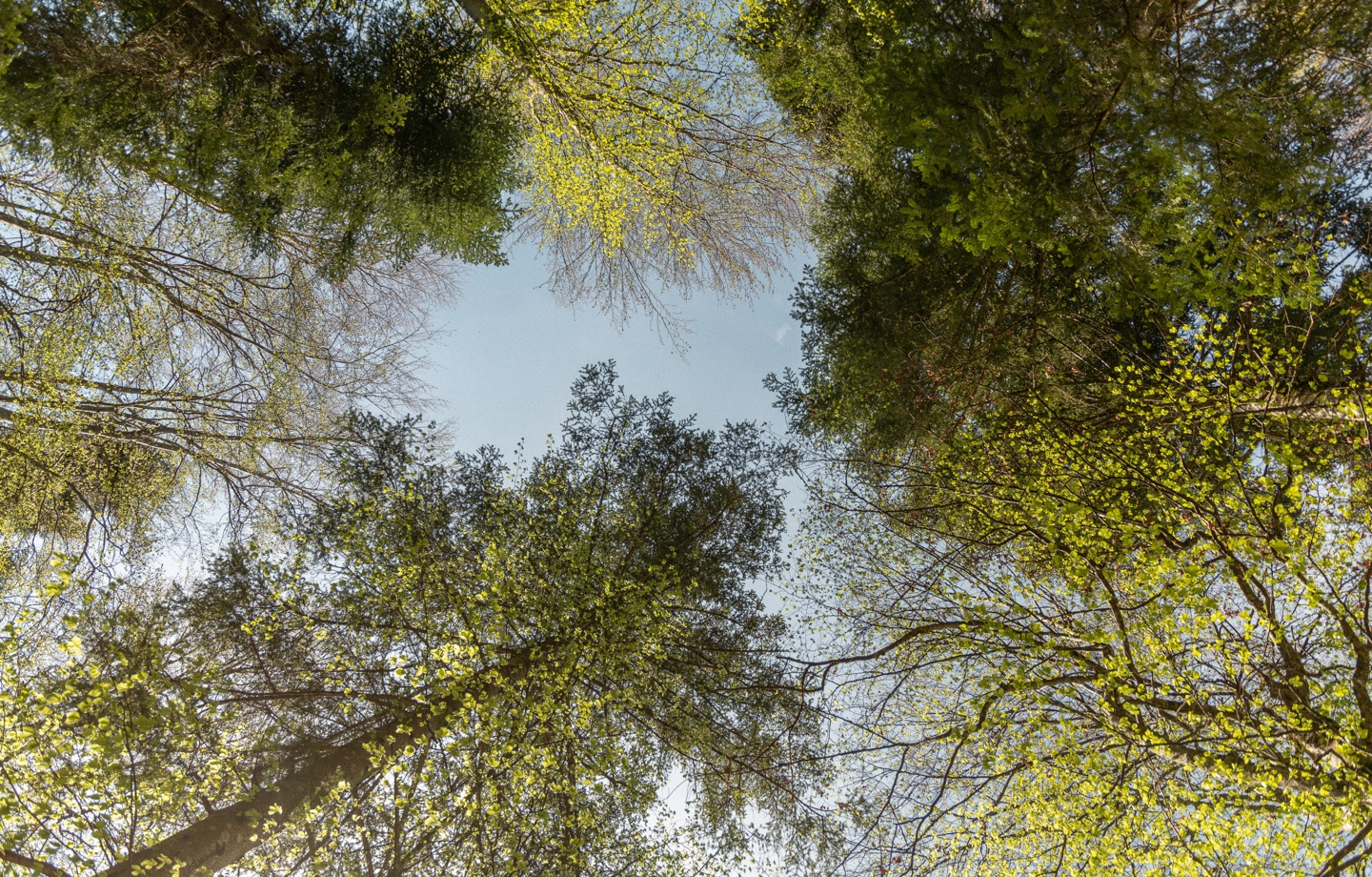Forest conservation is an essential part of the health of people and our planet. Here’s how to help safeguard the future of our forests.
Imagine standing in a grove of large pine trees, breathing in the musty scent of dirt, the clean-pine smell, and the baked wood of the bark. Above you, blue sky peeks through the enormous branches. Below your feet: dirt, pine needles, moss, and an occasional mushroom.
If your nervous system calms just by reading that, you’re not alone. Research shows that spending time outdoors can reduce anxiety, increase creativity, and promote better physical health. Listening to nature sounds while indoors can even reduce your heart rate.
A new report from the World Wildlife Fund backs this up: Forests are key to safeguarding human health. And yet, as our planet continues to heat up as a result of burning fossil fuels, our forests have never been more in danger.
Inspired by a 2019 symposium, Craig Beatty, one of the report’s authors and the manager of forest strategy and research at WWF, made it his personal mission to establish and understand the scientific evidence of forests on human health.
According to the report, healthy forests help humans by supporting our supply of food, water resources, and medicinal plants, and by reducing air pollution. They also prevent the emergence of zoonotic diseases like Covid-19 and limit the risks of natural hazards like landslides. They’re also sources of healing, reducing the risks of stress and lifestyle-based conditions like diabetes, cancer, and cardiovascular diseases.

Read more: How Park Prescriptions Improve Health
“We found that public health and forests are entwined — at the local, regional, and global level — and that across each of nature’s contributions to human health, forest conservation, protection, and management can improve our lives,” Beatty said in a press release. “And when we consider the public health challenges we face in our communities, counties, and countries, we should examine the very real health implications of how we’re treating our forests — and how they’re treating us.”
The report specifically highlights the fact that shrinking forests due to human activity and climate change devastate and destroy essential ecosystems and habitats. As a result, animals are forced to move closer to cities and developed areas, which increases our interactions with them and heightens our risk of exposure to the diseases they carry. Covid-19, the Zika virus, HIV, Ebola, and the H1N1 flu all began in animal populations. Forest conservation generally limits the possibility of a “spill-over event,” where wild animals transmit diseases to livestock, which puts people at higher risk of getting sick.
“I remember when we were writing this report, I was sitting at my kitchen table eating a bowl of cereal and thinking, ‘What are all the different ways this action is related to forests?’” says Beatty. He notes that most people think about how forests are good for our mental health; but realistically, the benefits go beyond this. “People don’t often think about how our actions affect forests and how forests affect us, such as through the products we buy, from tissues and paper towels to wood products. All this ties back to a need to protect and preserve healthy forests.”
In the report, WWF proposes a holistic, systemic framework that looks at saving our forests as necessary for human survival.
“We need to treat forests as a public good,” says Beatty. This means acknowledging how forests help us; looking at mediating factors like social demands, access, and personal health; and then taking action. We need to protect our forests, manage them, restore them, and create new wild spaces, too. Forests are inextricably linked to human health and climate change — trees are an incredible tool for sequestering carbon dioxide.

Read more: Old-Growth Forests are Declining — Here’s Why That’s So Devastating
There are many ways to get involved in forest conservation on both a global scale and in your local neighborhood. Learn about deforestation, which occurs when infrastructure and agriculture take over forest landscapes. Is it happening in your immediate area? If so, where? And if you’re worried about it, which local meetings can you attend to voice your opinion? What local nonprofits are doing conservation work that you can support through monetary donations or volunteer time?
You can vote with your wallet by choosing sustainable products and foods from companies whose practices don’t contribute to forest degradation. Your dollars can also be used to support organizations that care for forest management and regenerative agriculture in your area.
Beatty also says conversations matter; he suggests sharing the importance of forests in your life with your friends, family, and medical providers. Enjoy an afternoon with your kids in nature, and use the opportunity to explain how important those environments are for our efforts to save the planet.
You can also help move the needle at the government level. Join WWF’s call for action to alert Congress to the necessity of stopping deforestation and support federal policy, like the Forest Act, which protects forests by preventing illegally deforested products from entering the U.S. market.
Trees are remarkable. By saving them, we’re saving ourselves.

Read more: Why Prescribed Burns Are Essential For Forest Health
Have feedback on our story? Email [email protected] to let us know what you think!

Shop Pillows
The Essential Organic Pillow Collection
Gentle, breathable, non-toxic support.





